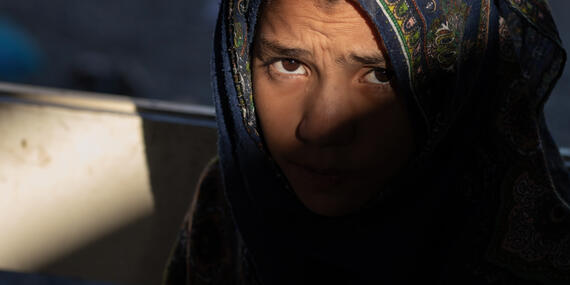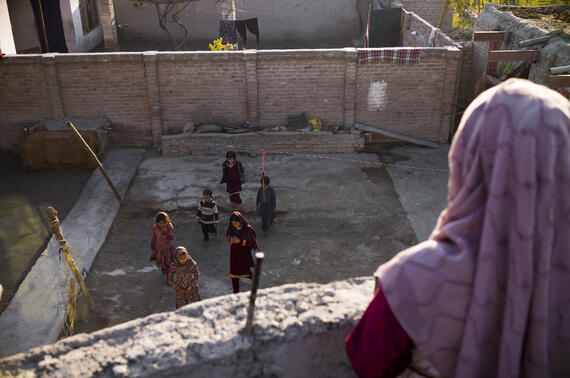Afghanistan: Nabila’s journey to journalism

By Aria Abawi
Born and raised in Yakawlang District, in Afghanistan’s Bamyan Province, Nabila’s* early years were shaped by the stark realities of life in rural Afghanistan. But even in times of hardship, she harboured ambitions far beyond the confines of her village.
With a thirst for knowledge and a desire to make a difference, Nabila pursued her tertiary education at Bamyan University. But it was not a smooth road.
She explains: “I encountered financial challenges when I started studying at the university. As I was old enough to work independently then, I had to support myself and my family, which is where the journey to journalism begun.”
From 2018 to 2019, Nabila worked at a local radio station, juggling work and school. Her commitment was evident, as she diligently drafted and submitted stories to the news editor, showcasing her emerging talent and passion for journalism.
From 2019 until mid-2021, Nabila transitioned to television. As a news presenter, she delivered timely and insightful updates to audiences across the province. Simultaneously, she used theatre as a platform to advocate for women’s rights. Her performances promoted women’s personal freedoms, such as their inheritance rights and the freedom to choose a husband. Through this dual approach, she aimed to raise awareness and spark meaningful conversations on issues crucial to women's empowerment and equality.

Thriving in her roles across two media outlets, Nabila presented prime-time news with grace, while leading radio programmes that discussed women and society. Through her writing, she celebrated the contributions of successful women, including female aid workers.
Following the Taliban takeover in August 2021, Nabila’s aspirations were challenged by restrictions on female journalists, including mandates to wear a veil while on air. This forced her to step back from her career.
"I’ve had to step away from my dream work, which has been the toughest decision I have ever made,” she said. “But I hold on to hope that one day my yearning to return to the very arena I poured years of dedication will be fulfilled.”
Nabila intertwines her hope with her energy to empower other Afghan women. She has led online training sessions in reporting and story writing to more than 100 Afghan women in the media. And recognizing the plight of some 20 unemployed women, she funded their sewing courses. This enabled the women to acquire other skills and sell their products in the local market to support their families.
As the breadwinner for her family and now expecting her first child, Nabila is uncertain about the future, particularly regarding her daughter’s education prospects. Nonetheless, she remains determined to tackle these obstacles:
“I cannot wait to overcome the challenges of girls’ education and women working in Afghanistan so I can continue to shine a light on our contributions to society and support those behind me.”
***
*Name has been changed.
